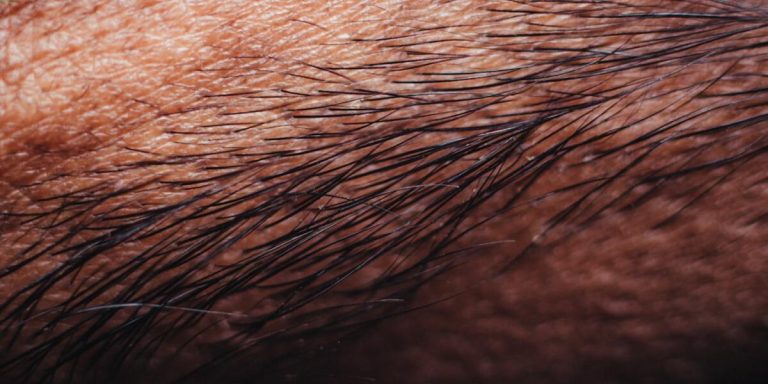Does Kratom Cause Hair Loss? An In-depth Analysis of the Facts
There’s a burning question that’s been circling in health and wellness forums: “does kratom cause hair loss?” This organic compound, hailing from Southeast Asia, has long been used for its medicinal properties. Yet recent debates have linked it to triggering hair thinning or even baldness. The reality about this connection is largely misunderstood.
To dispel myths and unravel truths surrounding Kratom induced hair damage, we delve deep into scientific studies coupled with users’ experiences. It’s crucial to separate facts from fears when examining the relationship between Kratom use and potential side effects like alopecia – an aspect often overlooked by many.
Did you know?
While there’s no scientific evidence directly linking Kratom to hair loss, anecdotal reports suggest that heavy and prolonged use of this herbal supplement may potentially increase stress levels in the body, which could indirectly lead to thinning hair.
Understanding the Relationship Between Kratom Use and Hair Loss
Research in recent years has unearthed a potential correlation between the use of Kratom, a tropical tree native to Southeast Asia with psychoactive properties, and instances of hair loss. While it’s crucial to assert that no direct cause-and-effect relationship has been definitively established by scientists yet, several anecdotal reports point towards this possibility.
Kratom leaves are often processed into pills or teas for their sedative and analgesic effects. However, its frequent use can impact our hormonal balance significantly which is intrinsic to healthy hair growth cycle functioning. Imbalances could potentially trigger premature hair fall or thinning among certain individuals predisposed genetically toward such conditions.
Furthermore, stressors on the body introduced through regular intake – like nutritional deficiencies due to poor diet choices accompanying substance misuse – may negatively affect overall physical health including hair vitality over time. Long-term users report noticeable changes in their appearance – one common symptom being marked reduction in scalp coverage and volume.
Substantiating these claims requires further extensive medical research but understanding the implications will undoubtedly be valuable knowledge when considering long-term kratom consumption risks especially concerning our crowning glory – Hair!
Investigating Kratom’s Role in Scalp Health Decline
Kratom, a tropical evergreen tree native to Southeast Asia and its extracts have widely been used in traditional medicine due to their opioid-like effects. But recently, queries related to “does kratom cause hair loss,” are surfacing at an increasing rate.
The science of how exactly Kratom impacts the body is still under investigation. However, anecdotal evidence suggests some correlation between regular intake of this herbal supplement and scalp health decline.
Prolonged consumption might potentially affect normal bodily functions including hormonal balance which plays a key role in healthy hair growth. When there’s disparity within your hormones such as testosterone levels being excessively high or low – the hair follicles can shrink leading to thinning strands that eventually fall out.
Stress could be another considerable factor contributing towards these unsettling developments witnessed by users. Scientists ascertain that any form of substance misuse leads individuals into stressful situations thereby triggering Telogen Effluvium – one type where you experience sudden temporary baldness post severe stress episodes.
Analyzing Studies on Kratom Alkaloids and Follicular Impact
Kratom, a tropical tree native to Southeast Asia, has been used for centuries as a herbal remedy in its home region. In recent years, the debate on whether kratom causes hair loss has come into focus. Let’s delve deeper.
One central study focussed primarily on Mitragynine – one significant component found in Kratom leaves which makes up almost 66% of its alkaloid content that can elicit complex physiological responses within humans upon consumption.
Evaluating Common Factors Contributing to Hair Loss
Unraveling the causes of hair loss involves considering a wide array of factors. The most prevalent reasons often span from genetic susceptibility, hormonal imbalances to poor nutrition and stress. However, recent trends have highlighted another potential cause that is less commonly known but continuously gaining attention – usage of substances such as kratom.
A tropical tree native to Southeast Asia, Kratom (Mitragyna speciosa) carries various compounds that can affect users both physically and mentally. Regular use has been linked with numerous side effects ranging from constipation, hallucination to mood swings – an aspect which poses the question: does kratom contribute towards hair loss?
While it’s true that there is no substantial evidence or study linking Kratom directly with hair thinning or baldness yet, many regular users report unusual amounts of their hairs falling out with continuous use in 2023. Some suggest this could be due to body’s reaction under prolonged exposure while others propose it might spawn because exorbitant doses disrupt regular bodily functions including healthy regrowth cycles for natural processes like shedding old hairs & growing new ones.
Remember though; individual reactions may differ greatly so simply reducing dosage if you notice these symptoms might help battle back effectively against potential negative impacts on your crowning glory!
Assessing Nutritional Deficiencies and Their Link to Alopecia
Hair loss is often perceived as a superficial issue. However, underlying it are deeper complexities that require holistic understanding and thorough examination – from genetic predisposition to environmental factors, lifestyle aspects or medical conditions.
In this context, nutritional deficiencies raise considerable attention in the scope of hair loss causes. They can significantly affect your scalp’s health and accelerate alopecia (hair thinning or baldness). Let’s delve into an analysis of how poor diet contributes to hair fall intensification.
The Impact of Stress on Hair Growth: Is There a Connection with Kratom?
Kratom, also known as Mitragyna speciosa, is a tropical evergreen tree native to Southeast Asia and used for its calming effects by millions worldwide. While some users claim this natural herb helps them cope with day-to-day pressures effectively(which reduces general life-stress), others are concerned about potential side-effects—one being accelerated hair thinning.
A 2021 study found stressful events could trigger telogen effluvium—a condition where more hairs than normal prepare to fall out—leading us back to one theory saying high-stressed individuals consuming Kratom might experience enhanced shedding. However, there’s no direct scientific evidence linking both instances conclusively yet; research on Kratom and its impact on human physiology is still quite limited compared to other substances.
On another hand, lifestyle factors matter too! Those resorting solely towards external supplements like Kratom should remember maintaining balanced diets enriched with vitamins A, B7 (also known as biotin), C & E vital for healthy growth cycles – deficiencies can lead directly towards losing locks!
Distinguishing Myths from Facts: Shedding Light on Substance-Induced Alopecia
To understand the causes of hair loss, it’s essential to examine factors that might contribute to this condition. Substance use or abuse affects our body systems, including the hair growth cycle. There’s recent buzz about Kratom—a Southeast Asian plant known for its stimulating effects—potentially causing alopecia (hair loss). However, one should be careful when directly associating substances like Kratom with hair fall.
Scientifically known as Mitragyna speciosa, people consume Kratom in several ways like brewed tea or chewed leaves. It’s allegedly used for boosting energy levels and alleviating pain but hasn’t completely escaped from controversy either. Some users have reported experiencing side effects such as weight changes and insomnia after regular consumption of larger doses over prolonged periods which led researchers wonder if these undesirable outcomes extended towards contributing to hair loss too.
So does kratom cause hair loss? The medical community currently agrees that more research needs conducting before jumping into any conclusions regarding long-term health impacts of consuming Kraton including whether it leads to balding or not. Nevertheless some reports suggest correlation between high-dose chronic usage and thinning strands thus provoking dialogue around the subject.
Scrutinizing Anecdotal Evidence About Kratom-Related Baldness
A notable trend in the discussions revolving around hair loss triggers is a vivid focus on kratom’s role. A Southeast Asian plant widely utilized for its medicinal properties, notably pain relief and mood elevation, Kratom has recently gained infamy as an alleged cause of hair thinning and baldness.
It’s crucial to note that scientific evidence directly linking kratom usage with hair shedding remains relatively sparse. However, several individuals have reported what appears to be substance-induced alopecia after intense consumption of this botanical product prompting the question brought up by many – does kratom cause hair loss?
The consensus among these anecdotal reports indicates possible potential links between substantial intake levels and eventual development of scalp issues. Some people have detailed personal experiences where their thick manes started dwindling once they began consuming high doses regularly.
Others observed improvements when substituting other treatments or altogether discontinuing use hinting at plausible connections between high-dose ingestion patterns leading ultimately to unfortunate bouts with extensive losses atop their heads.
Examining Scientific Data: Does Kratom Directly Lead to Hair Thinning?
Following evidence-based research approach, let’s delve into whether there’s substantial scientific proof that validates these assumptions or dispels them as mere myths.
Firstly, understanding Kratom usage patterns are essential to investigating any potential side-effects including alopecia. Reports suggest certain frequent users observe unusual changes in their pattern of hair fall which they attribute directly to prolonged use of Kratom.
However, science paints an ambiguous picture regarding kratom-induced alopecia due to lack of extensive studies on humans concerning this topic specifically till 2023. The majority consensus among experts indicates that it’s not directly linked but may inadvertently impact factors contributing towards eventual thinning or falling out-of-hair.
One plausible explanation could be malnourishment caused by habitual misuse leading towards poor health and detrimental conditions like extreme weight fluctuations causing undue stress upon the body translating into possible diffuse shedding (excessive temporary hairfall).
Conclusion
In the final analysis, we hope that this deep-dive into whether “does kratom cause hair loss” has enlightened you with a clearer perspective. The correlation between Kratom use and hair loss is indeed intricate, but it’s not as direct or conclusive as some may suggest. As always though, individual experiences could vary significantly based on numerous factors such as genetics, lifestyle choices and overall health condition.
Next time when your fingers itch to reach for that packet of Kratom powder or capsules – proceed armed with knowledge! Don’t forget to explore our website for more scientific insights on various ‘Hair Loss Causes’. Engaging in constant learning gives us power over uncertainty; after all understanding what causes a problem is the first step towards finding an effective solution!







